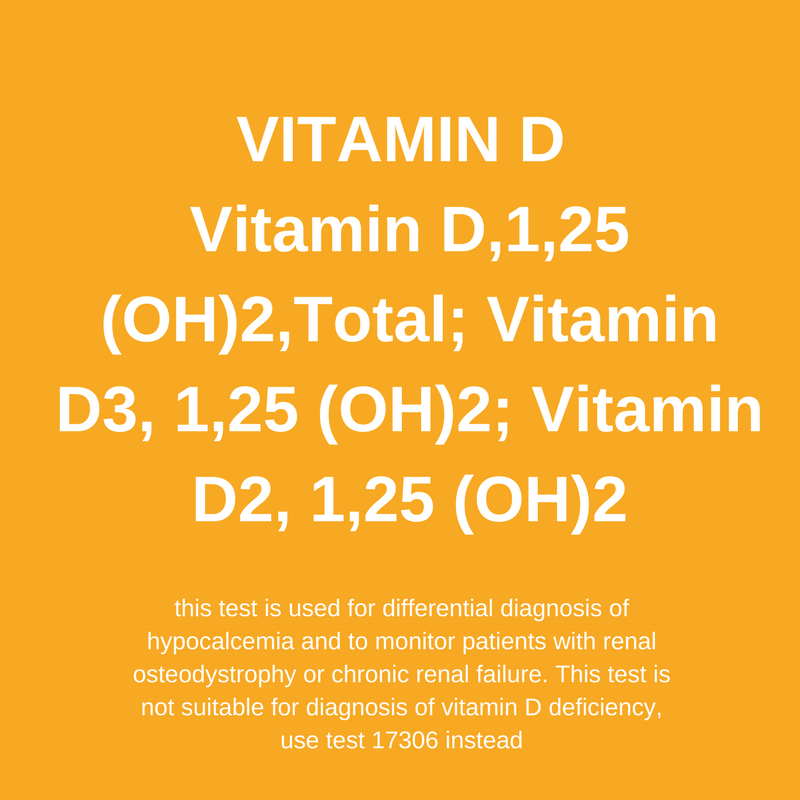Vitamin Deficiency Tests
Vitamin D promotes bone health by increasing absorption of calcium and phosphorus in the intestine. It also plays a role in neuromuscular, immune, and other cellular functions. Although exposure to sunlight is a ready source of vitamin D, deficiency in the U.S. is common.
Sufficiency vs Insufficiency vs Deficiency
25-Hydroxyvitamin D [25(OH)D] measurements are used to find out if people have enough vitamin D. Here’s a good guide :
• Sufficiency: 30–100 ng/mL
• Insufficiency: 21–29 ng/mL
• Deficiency: <20 ng/mL
These conditions may put people at risk for vitamin D deficiency:
• Being pregnant
• Lactating
• Having dark skin
• Being elderly
• Being obese
• Being housebound
• Taking certain medications
• Having a malabsorption syndrome - Left undiagnosed for years can lead to frequent fracturing of bones disrupting a child's life and causing unnecessary pain and suffering.
References 1. U.S. Department of Health and Human Services. Overweight and obesity statistics. niddk.nih.gov/health-information/healthstatistics/Pages/overweight-obesitystatistics.aspx Accessed July 17, 2015. 2. Wortsman J, Matsuoka LY, Chen TC, et al. Decreased bioavailability of vitamin D in obesity. Am J Clin Nutr. 2000;72:690-693.










